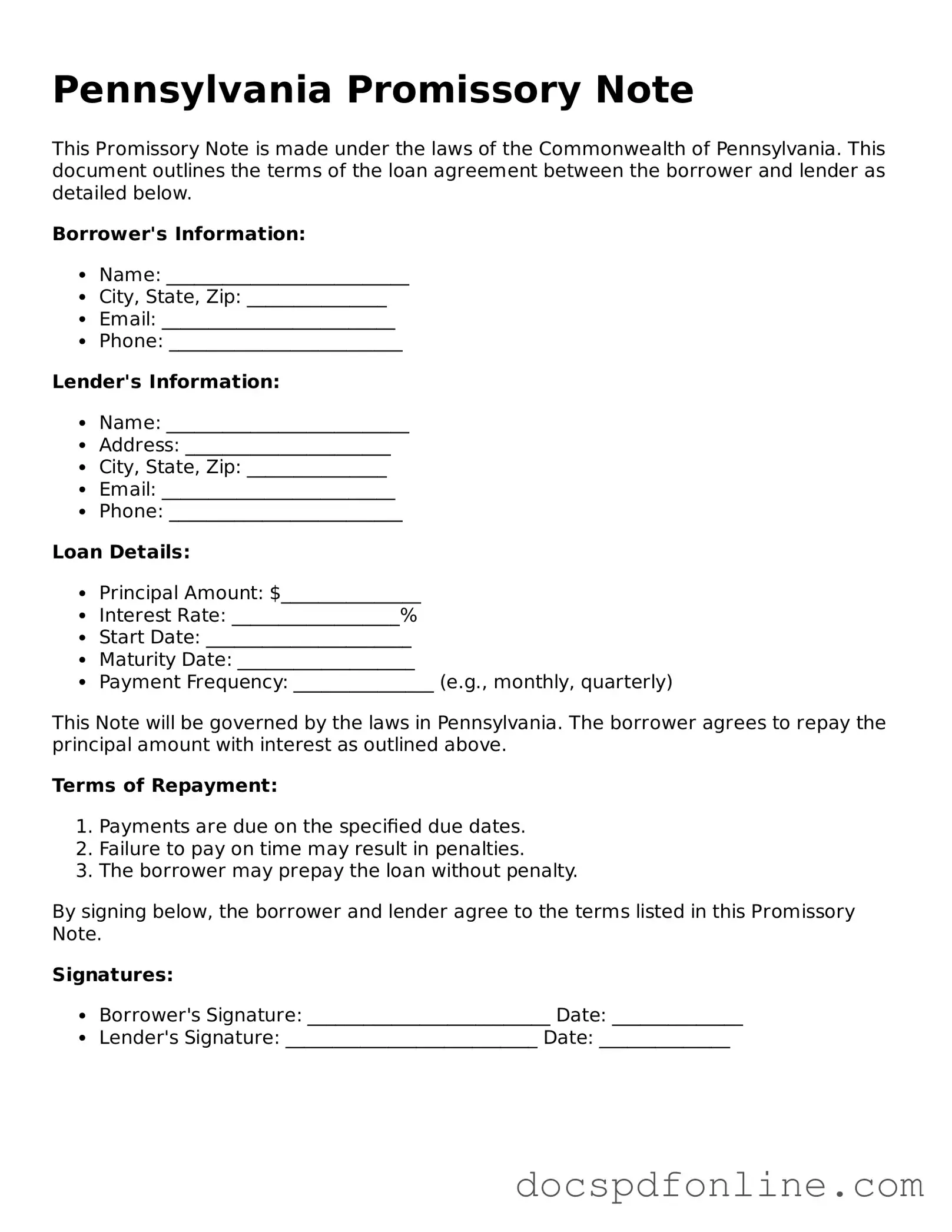Legal Promissory Note Template for Pennsylvania
A Pennsylvania Promissory Note is a legal document in which one party promises to pay a specified sum of money to another party at a defined time. This form outlines the terms of the loan, including interest rates and payment schedules. Understanding this document is essential for both lenders and borrowers to ensure clear expectations and obligations.
Launch Editor Now

Legal Promissory Note Template for Pennsylvania
Launch Editor Now
Save time — finish this form fast
Finish Promissory Note online — edit, save, download made easy.
Launch Editor Now
or
↓ PDF File
